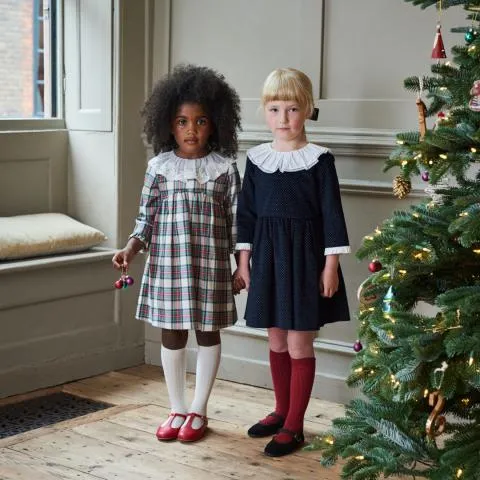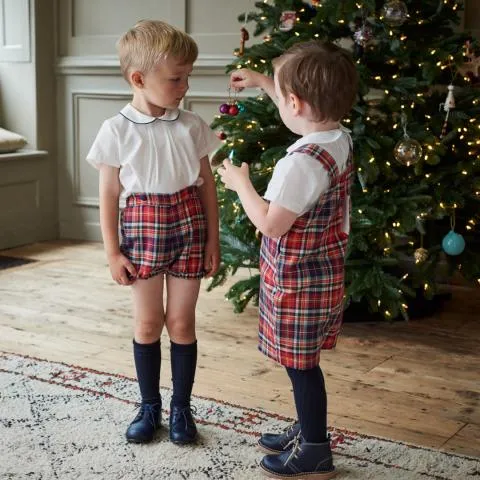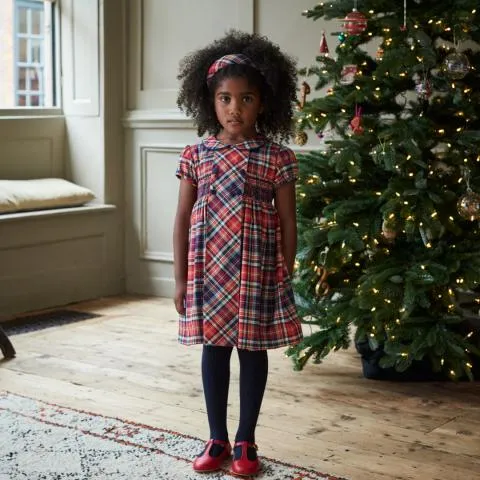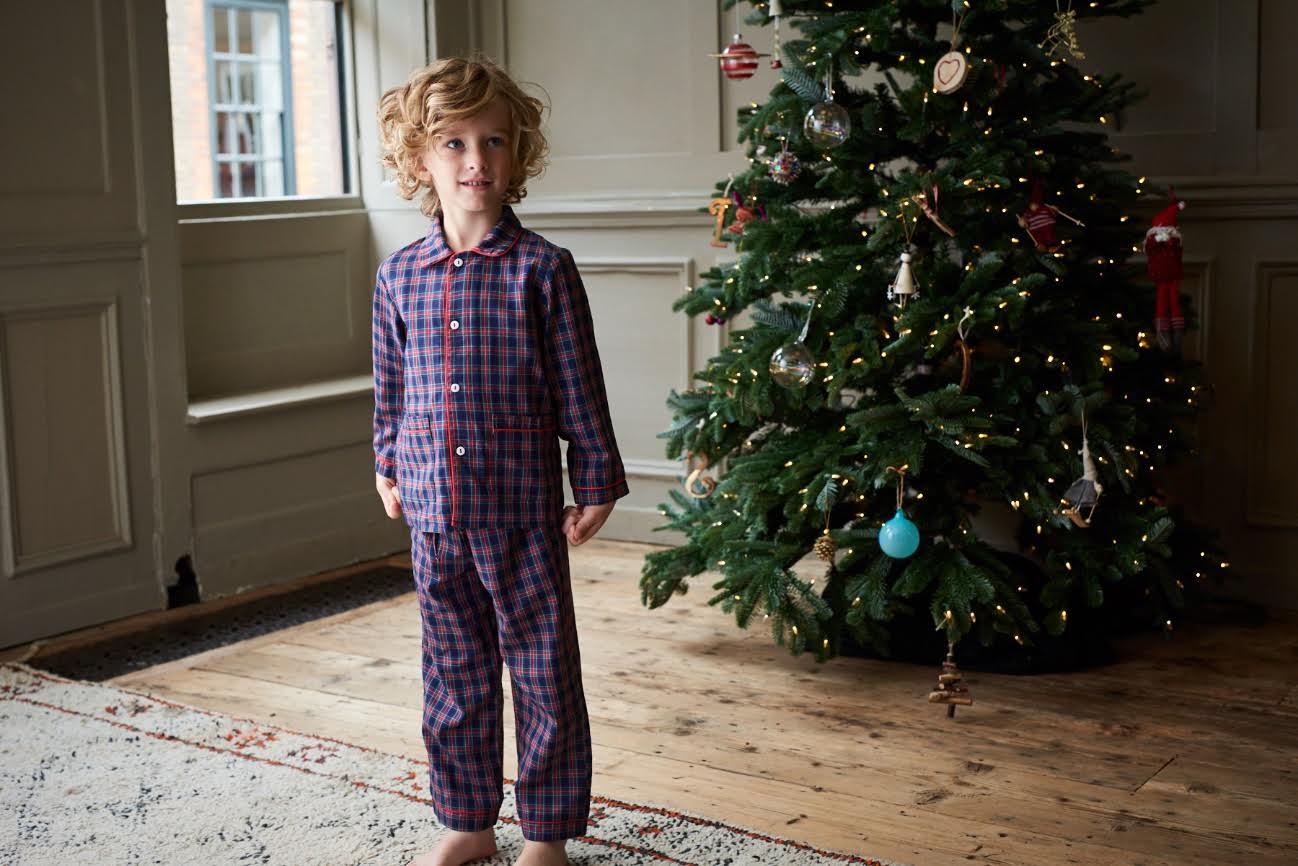10 EXPERT TIPS ON GETTING YOUR CHILD TO SLEEP ON CHRISTMAS EVE
Christmas Eve is one of the most exciting nights of the year for children, and amid all the anticipation and excitement, parents can tend to struggle to get their little ones off to sleep.
With this in mind, luxury childrenswear brand La Coqueta Kids collaborated with Dr Kalanit Ben-Ari – a child development expert, psychologist, family therapist, and founder of The Village, an online parenting community empowered by experts – to discuss actionable tips* for parents on how they can get their children to go to sleep amid Christmas Eve excitement. Read on to find out more…
- Website: https://www.lacoquetakids.com/
- Instagram: https://www.instagram.com/lacoquetakids
- Facebook: https://www.facebook.com/lacoquetakids/
- Pinterest: https://www.pinterest.com/lacoquetakids/
- YouTube: https://www.youtube.com/channel/UCJF5R0gUVrslTj0m9WC16tQ
According to Dr Ben-Ari, it is a natural response for the brain to take time to relax and self-regulate excitement (or nervousness, which uses the same brain mechanism). When we are excited, the brain is over-stimulated, and hormones are being produced.
Children are already going through a developmental stage where they are learning to self-regulate their excitement and anxieties, so add overtiredness into the mix during the holidays and this may affect them as well. It is similar to when adults return home from an exciting night out or show; they may need to take some time to calm the body ready for sleep. Here are 10 tips for getting your child to sleep on Christmas Eve:
10 EXPERT TIPS ON GETTING YOUR CHILD TO SLEEP ON CHRISTMAS EVE

10 EXPERT TIPS ON GETTING YOUR CHILD TO SLEEP ON CHRISTMAS EVE
1. Discuss expectations ahead of time
A day or two before Christmas Eve, have a short conversation with your child about your expectations for the day – and night – including what is going to happen, who is coming, what will you do, and the order of things, including their sleep. Let them know approximately what their bedtime will be, along with any other children. Leave room for negotiation, so you can be flexible if they ask to stay up later and spend more time with you.
2. Avoid sugar from midday onwards
Chocolate, sweets, and other high-sugar foods are all over-stimulating for the brain and nerve system. Avoiding these foods as much as possible from midday onwards can help them to relax at bedtime.
3. Avoid screens for at least 2 hours before bed
I recommend avoiding screens for at least two hours before bed. This will help to prevent overstimulating their brain which can negatively affect both their ability to sleep and the quality of it.

4. Have dinner earlier, and bring bedtime routine forward
You may like to begin the bedtime routine a little bit earlier, so that if it takes your child longer to fall asleep than usual, it is still a reasonable time. To do this, it may help to bring everything forward slightly, including your evening meal.
5. Spend time with them before they go to sleep
Spend time with them before they go to sleep, whether this is by being with them during bath time or reading them a bedtime story. Parents can be very busy during the Christmas period, but a child who feels connected with their parents in a meaningful way is more likely to collaborate on things such as bedtimes.
6. Create a calming atmosphere
as you approach bedtime Dimming lights, having a shower or bath, and eating an early dinner all contribute to a good night’s sleep – even if it may be challenging to achieve this during the Christmas period.
7. Encourage calm and relaxing activities before bed
Spend time doing calm and relaxing activities leading up to bedtime, to help them to wind down ready for sleep. Listen to yoga-style music, dim the lights, and do some drawing, reading, or writing in bed. Children who are old enough may like to write in a journal about their feelings before going to sleep.
8. Give your child options
Before going to sleep, give them options. Giving your child options will fulfil their need for autonomy and control and will direct that need in a healthy way. For example, try the following: “after your bath, it is time to go to sleep. Would you like to read a story in bed, or shall we listen to one song in bed before you go to sleep?”
9. Offer quiet tasks to continue in bed
Agree on a quiet and relaxing task that they can continue doing in bed until they fall asleep naturally, such as drawing or making Christmas cards.

10. Acknowledge their excitement and validate it
You could say something like “I can see that you are very excited about tomorrow. Of course you are! We all are looking forward to it. Now it is time to go to sleep and tomorrow we can continue with the excitement. What do you think may help you relax now and feel ready to sleep?”. Dr Ben-Ari continued that one or two nights with little sleep will not have a long-term effect on children. It is completely natural that they do not want to miss the fun, family time, and general excitement that goes on during the festive period. The negative effects of impacted sleep, such as a showing a lack of concentration and being irritable, are more evident when children are sleep deprived on a daily or regular basis. She also added that parents should consider what it is that you want your children to remember about you, their family, and this holiday. Then be conscious about what you do, how you react, and the energy within the home, as this is what they will remember for years to come. One night with less sleep does not cause any harm or lasting damage. Whatever you decide, do it in a connected and loving way. There can be a great deal of stress in families leading up to Christmas. Reflecting on how you want this holiday to be remembered will help you to find the right balance for your family.
10 EXPERT TIPS ON GETTING YOUR CHILD TO SLEEP ON CHRISTMAS EVE
*Tips are dependent on the children’s age
10 EXPERT TIPS ON GETTING YOUR CHILD TO SLEEP ON CHRISTMAS EVE
More sleep tips here
